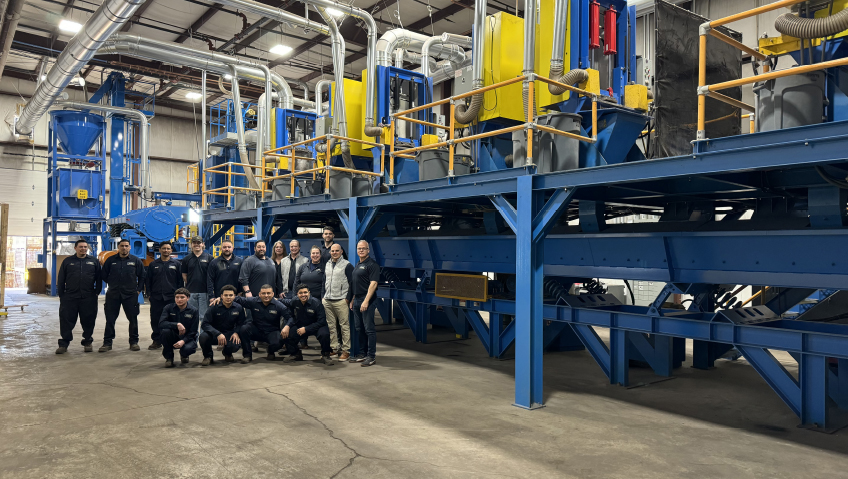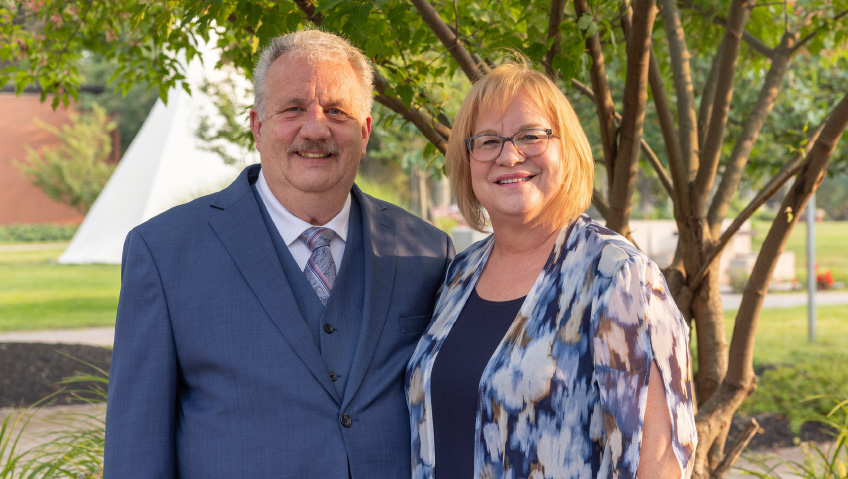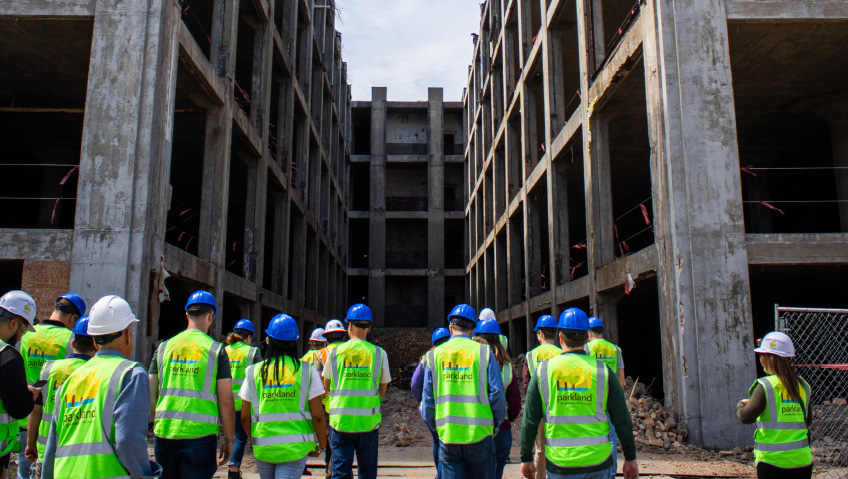One of the metal recycling sector’s largest buyers, processors, and recyclers of automotive and industrial catalysts, spark plugs, and oxygen sensors, Accurate Converter was established in 2005, although ownership’s history in the metal recycling business dates back to 1903.
Operating out of six locations in Rhode Island, Massachusetts, Arizona, Illinois, New York, and Florida, Accurate Converter has led the recycling industry for almost 20 years and continues to forge a path into the future with innovative ideas and full transparency.
“Some major trends in 2024 within the industry have a significant bearing on Accurate Converter as well as the precious metal recycling industry, specific to PGMs (Platinum Group Metals, consisting mostly of platinum, palladium, rhodium, and iridium,” explains CEO George Lucas.
Palladium and rhodium are predominantly used in the automotive industry for catalytic converters, which make up most of the commodities Accurate Converter buys, processes, and recycles.
As the push to electrify automobiles intensifies, the long-term demand for palladium and rhodium will wane. Lower demand equals lower buying pressure, which translates to lower prices. Post-COVID, prices of these two metals have dropped more than 65 percent, making it extremely challenging for companies like Accurate Converter.
Another major factor impacting the industry has been the theft of catalytic converters and the uncoordinated and uninformed countermeasures taken by federal, state, and local law enforcement agencies to curb the theft.
Lucas has heard firsthand from numerous people about their catalytic converter theft experiences, whether it was a neighbor who had one stolen while parked in their own driveway or at the airport while away on a trip. “This was when converters were $300 to $400 apiece in recycle value. They were disappearing by the thousands,” he shares.
Consequently, the federal government pushed to have thefts quashed, with Homeland Security and the FBI also getting involved. Unfortunately, this task proved no easy feat.
“Literally every state, every city in the state, and every county in every state in the United States has a different regulation regarding catalytic converters,” Lucas says. “They have a different certification—one needs one type of license, another needs a different license. In the state of Florida, it’s illegal to purchase converters with cash, even in a business-to-business transaction. However, in several counties within Florida, it is legal. In some states around the country, you need a secondary metals recycling license to buy converters; in others you need a precious metal buyers license. Florida thought saying, ‘you can’t pay cash for converters’ would stop the theft.”
Unfortunately, there are many instances when automotive recyclers have tow truck drivers show up with cars wanting cash, or approach companies like Accurate Converter asking for $20,000 in cash for recycled catalytic converters.
“You have one county saying it’s illegal, a state saying it’s not, and the federal government saying they don’t know,” Lucas says.
Accurate Converter, and many of its competitors, maintain in-house legal counsel to track, decipher, and comply with the drastic variances across the country. “We have a location in West Palm in Florida, and right now our in-house attorney is working with a lobbyist who’s working with several law enforcement agencies in Florida to find out what the law says. What are we supposed to do?”
ISRI (the Institute of Scrap Recycling Industries) and IPMI (the International Precious Metal Institute) also has lobbyist groups, which Accurate Converter partly funds, to help change the laws, adds Lucas, but no state is coordinated with another state, and no county is coordinated with the county next to it. “The lack of coordination across the country between law enforcement agencies has been a nightmare for our industry,” he says.
Regarding precious metal recycling trends and market insight, Accurate Converter believes that prices of platinum, palladium, and rhodium will stabilize over the next few months and trade in that same range for the foreseeable future, says Lucas.
“This forecast plays into the last challenge the recycling industry faces right now: hoarding,” he adds. “Accurate Converter works with many automotive recyclers all across the country. The majority of catalytic converters that enter the recycling stream come from total loss and end-of-life vehicles, which all flow through the automotive recycling industry,” he says. “Post-COVID, the average price of a catalytic converter was over $300, with some converters exceeding $1,000 per unit.” What he is finding in his travels is that the average recycler doesn’t know why rhodium—the least-used precious metal in a catalytic converter—went from $500 an ounce to $30,000 an ounce during and just after COVID, while palladium went from $800 an ounce to $3,000 an ounce.
Recyclers got used to the high converter prices, and as the market adjusted and prices dropped significantly, many recyclers held onto their converter inventory thinking that the market could recover. A surprising number of recyclers still have that inventory with the hope the market will pop back up to where it was 18 to 24 months ago. The challenge for companies like Accurate Converter is to help recyclers maximize their recovery based on today’s market, where the average catalytic converter ranges from $80 to $100, one-third of where it was previously. “Understanding what happened to the market then and now is one of the ways Accurate helps our customers make the right decisions.”
While some of this was due to COVID itself, he adds, the sharp uptick in precious metal prices was due more to the entire global supply chain collapsing. It started with the semiconductor chip industry coming to a halt. Among the industries most affected was new vehicle manufacturing. The scarcity of semiconductors meant millions of vehicles could not be completed and sold. “When all the automotive manufacturers were going through the semiconductor shortage two years ago, when there were millions of cars parked on lots because they needed semiconductors and they couldn’t sell the car, the automakers said, ‘well, if this happened to semiconductors, what if it happens with precious metals and we can’t make catalytic converters? The cars will be sitting here because they don’t have emission systems,’” Lucas explains.
So the automakers made the shift to PGMs (platinum, palladium, and rhodium), assuming the same would happen with those critical metals, and started buying as much as they could for their manufacturing inventory, driving the price up three-fold. The more they bought, the higher the prices went. Once the market recovered, automakers were left with two to three years of PGM inventory, causing the precious metal market to crater. Mines continued to produce and sell metal into the market, and recyclers continued to recycle, also selling metal into the market. “All selling and no buying equals lower prices,” Lucas says.
“Hoarding in our industry is when an automotive recycler or collector holds onto their catalytic converter inventory that they’ve been saving for 12, 18, or 24 months waiting for a significant recovery in the market. To put it in perspective, if you take 25,000 catalytic converters and multiply it first times $300 to know what it was worth and compare that to the average values today of $100, some of these recyclers are sitting on $5 million to $7 million worth of converters. They’re hoping it’s going back to $300 and they just don’t understand the dynamic of why the market did what it did,” Lucas says. “Helping them understand the dynamics of the past two to three years so they can make an informed and educated decision about their converter recycling programs is one of our main focuses right now.”
In the years following, Accurate Converter has remained dedicated to maximizing its customers’ recovery through an open and efficient process, exceeding customers’ expectations, and, especially, being one of the only companies in the industry that’s completely transparent with customers, says Lucas.
“The converter recycler has always been looked at as some type of ‘Black Box’ by the scrap metal and auto recycling industries, in many cases for good reason. Our goal at Accurate Converter is to change that,” he says.
The company aims to educate, inform, and advise its customers such that they see the maximum return for their commodities.
“We share the assay lab analysis—the way the content of platinum, palladium, and rhodium is calculated—with our customers directly from our refining partner,” says Lucas. “We offer a sample of the material back to our customers so they can have it checked by an independent lab if they wish, which is why one of our slogans is ‘Trust, but Verify.’ Our settlement statements are detailed, clear, and concise with no hidden fees or charges.”
Aiming to reorganize and restructure the company to run more leanly and efficiently due to current market prices and conditions, Lucas believes Accurate Converter is now the best-positioned company in the industry with stellar partners behind it.
“Our goal is helping companies successfully navigate this market, and becoming the company that recyclers turn to for their catalyst recycling needs,” says Lucas. “We’re not just a catalyst recycler; we bring a vast array of expertise and ideas to our industry.”
Accurate Converter is gearing up right now for an industry-changing program that involves the targeted acquisition of catalytic converters from the recycling community, where they will be re-certified for re-sale to several automotive OEMs and back to the recycling community.
“We’re extremely excited to roll this out later this year and are very grateful to our partners in this program that helped make it possible,” Lucas says. “Look for an announcement later this year for our new ‘Certified OEM’ program!”






